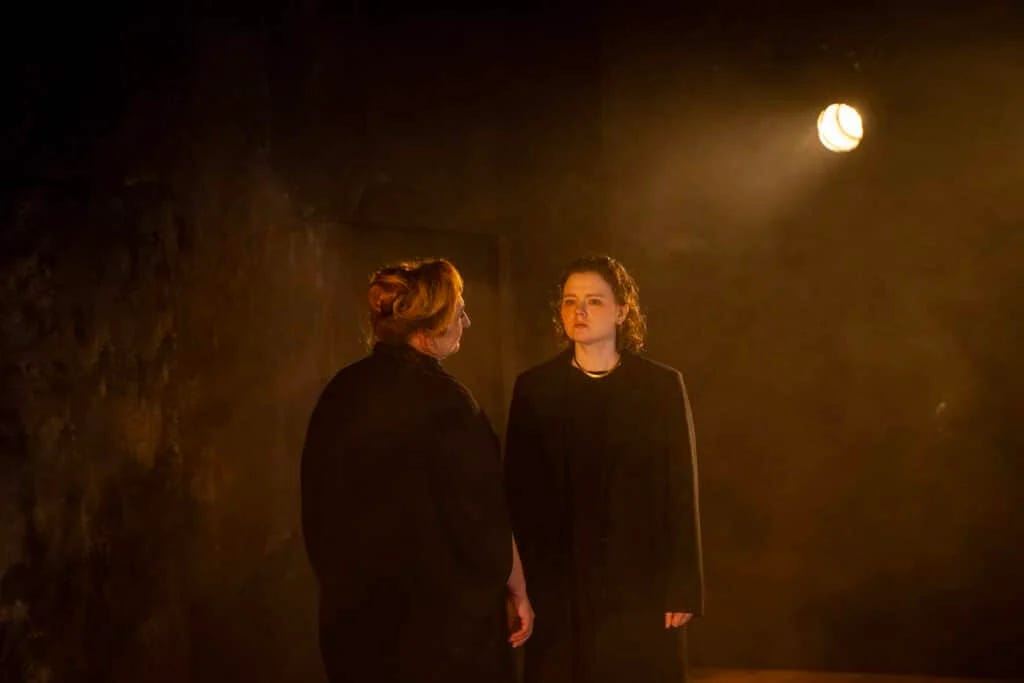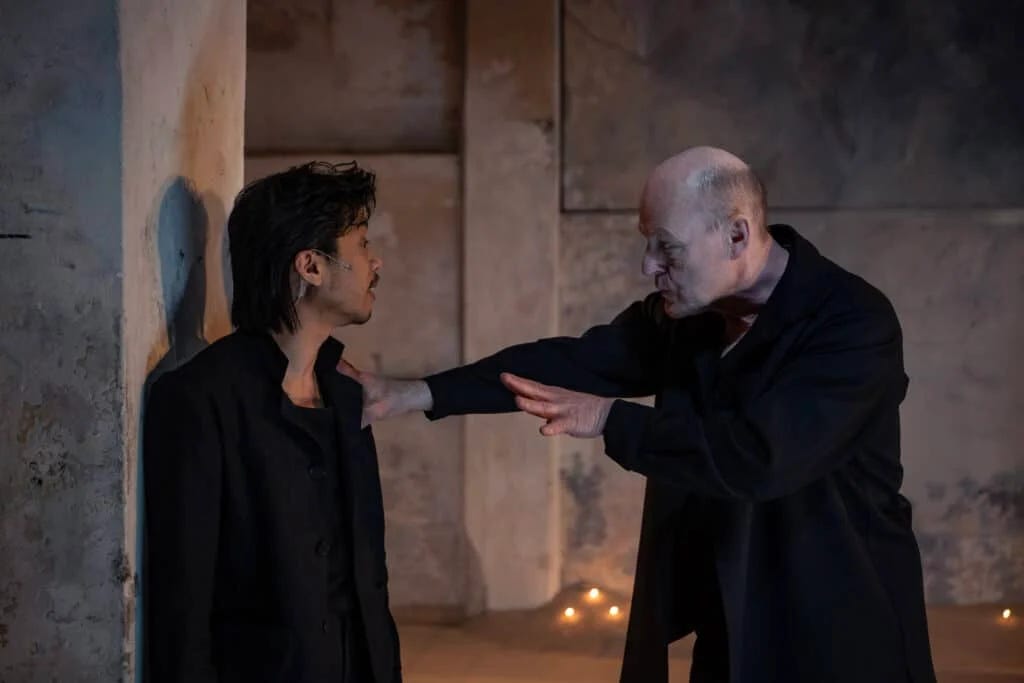I recently saw a production of Sophocles' drama Antigone, the story of the young woman Antigone, who defies her uncle, the tyrant Creon, and buries her own brother, Polyneices, even though Creon has forbidden her to do so. It is clear that the drama can be read from a feminist perspective. The play vividly illustrates the consequences of men ignoring women. But the play is also about intergenerational conflict, as Creon's son Haimon defies his father and chooses to die with Antigone – they love each other, they are family. The drama also powerfully explores the relationship between the private and the public, the family and the city state – between oikos and polis.
But perhaps it is the times we live in that make me willing to overlook these obvious pegs, and instead ponder how the tragedy also visualises the mechanisms that make tyranny possible. It makes me want to read Antigone all over again, focusing on the nameless – the guardian and the messenger.
In this production, directed by choreographer Alan Lucien Øyen and produced by The National Scene in Bergen, the messenger and the guardian seems merged, played by the actor, Huy Le Vo.
The guardian's tentative movements in the room, driven by a sense of responsibility, effectively convey the gravity of his task. Creon, played by Stig Amdam, on the other hand, doesn't have to be afraid of anyone catching him. In the interaction between the guardian and Creon, his movements clearly indicate that he is in charge.
On the other hand: This production has also shown us an uncertain Creon, such as in the scene where he delivers his speech to Thebes proclaiming that the city is safe again. Here, his son Haimon, played by Peiman Azizpour, listens and supports his father, creating a rehearsal-like atmosphere.
This scene is the first to make me consider that the real drama is not between Antigone and Creon, both with their oppsite sets of rigid values, both standing firmly on their own ground. It is rather a drama - and a tragedy - telling the story of those who try to mediate between Antigone and Creon. It makes me think, is it true that Antigones claim for following “eternal, godly laws” and her “family first”-attitude, will be more liberating for a society on the long run? I belive that it does not. Today's deliberative democracy, with its principle of separation of powers, can equally protect the individual against rigid family rules, such as forced marriage and honor killings.
I guess I became able enter this path of thinking because of the excellent acting of Reidun Melvær Berge. Since I first saw Melvær Berge in the production Telavåg, written by Stig Amdam and produced by Det Vestnorske Teateret, I have been impressed by her ability to convey a person's intense stubbornness while at the same time being extremely vulnerable, using small gestures and nuanced facial expressions.
This ability is invaluable in this context. Antigone is strong and steadfast; her sister Ismene (Monica Dybwad) is more mercurial. Initially afraid to defy, she then supports her sister's rebellion, but Antigone won't let her get away with it.

The guardian, along with Ragnhild Gulbrandsen's portrayal of Eurydice, Creon's wife and Haimon's mother, is a clear reminder of those who pragmatically follow a tyrant, making it possible for the tyrant to be just that – a tyrant. In this production, it is made clear that it is not until Creon asks Eurydice for advice that she gives her honest opinion, and then it is too late – tragically enough. It is clear to me that Creon's inability to listen to the opinions of others – the city-state's lack of a culture of deliberative democracy – is the primary cause of the situation going so terribly wrong. Antigone is the one who dares to speak out and break the tyrant's rules. But the regime within which she acts is made possible by all those who acquiesce and who have acquiesced. This includes the wife who first and foremost holds her tongue and the guardian who sees no other option than to tread carefully.
This production of Antigone, directed by Alan Lucien Øyen and produced by The National Scene, and the times we live in, made me curious about exactly this. It's clear to me that a story you've heard many times before can take on a new meaning when it's told again. And of course, its preferable to see it staged in the theatre, to read the text over again may be useful, but to see it done and interpreted by others, is much more giving.



